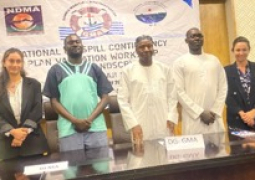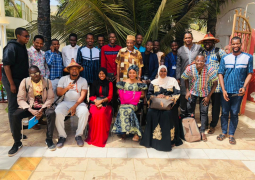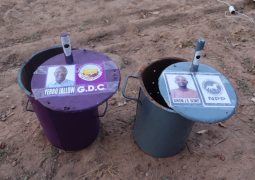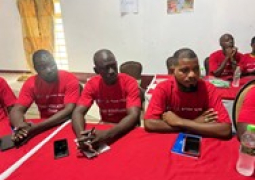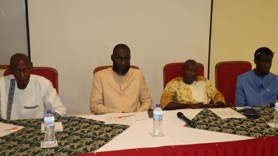
The strategy is aimed at enhancing the ownership and sustainability of the project achievements and outcomes.
The focus was on a comprehensive mechanism for ownership of the key project achievements, institutionalisation and sustainability for project results during and beyond the project implementation period.
Speaking at a validation ceremony, Alhagie Nyangado, deputy permanent secretary Finance and Administration at the Ministry of Agriculture, underscored the significance of the convergence while urging participants to participate well with the desire of enriching the strategy document.
DPS Nyangado hailed the consultant for “doing a great job with the document”, adding that agriculture being the backbone of the country, if utilised, will bring massive transformation in the country.
Project sustainability, he noted, is very crucial. “Most of the time, we only consider this during the implementation of projects. However, I am happy that this project has taken an extra mile to ensure that a thorough review and study is carried out for people to look at the project and what it means for the funding to exist.”
He added: “Therefore, it is important the project is reviewed with a view to ensure its sustainability. This will help the government and other stakeholders with its responsibility.
For us to make a difference in our life, we must accept that it must only be through agriculture. Our country has no other resources except agriculture. It also happens that our lands are very flat, hence we should make best use of agriculture. But again, sometimes you even ask yourselves why we are not at where we want to be.”
“We should also start changing our thinking that not all of us can sit in offices. We must venture into agriculture as it is among the ways to not only develop the country and change the trajectory, but also improve our lives and livelihoods,” he emphasised.
Mamour Alieu Jagne, ROOTS Project Director, said the sustainability and exit strategy document has “implications for all of us.”
“This is why we have officials from the Songhai initiative in Farafenni, agriculture value chain officials, farmers platform members, among others here. The document is not just an academic exercise. What we want to avoid is preparing the strategy at the end of the project, hence there would be no time to implement it.”
The ROOTS project, he said, is more than half into its life cycle. “Therefore, it is time we start thinking about what is next after the ROOTS project. The project is a substantial investment in the country in order to transform the lives of farmers and our farming populations. Ultimately, that is what the ROOTS project is about.”
He called for the need to put in an adequate sustainability mechanism, noting that sustainability is not only the business of the ROOTS Project but all stakeholders.


